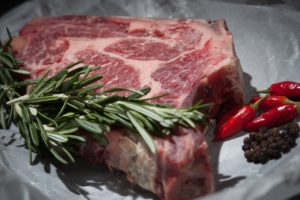Beginner Tips
Get started on the keto path.
By Lindsay // The Ketoneer
What is keto? How do I start? Is it expensive? I get asked these questions a lot. Keto is short for ketogenic diet. This is a low carb, high fat, moderate protein diet. Being in a state of ketosis basically means your body is burning fat and producing ketones rather than running on glucose. Your body can learn to run on its own stored fat for fuel. Therapeutic ketogenic diets have been used for decades to treat neurological disorders such as epilepsy. Think of ketones as a cleaner burning fuel for your brain and body. Many people report mental clarity and a multitude of health benefits after starting this way of eating.
Here are the quick tips to help you start.
- Watch the videos I recommend to beginners HERE. Dr. Berry also has a great Keto 101 playlist on his YouTube channel.
- Clean out your cabinets if you can. Get rid of all the high carb junk and industrial seed oils (canola, corn, soybean, vegetable, crisco) in your house.
- Go to the grocery store. Print my keto grocery list HERE. Take it with you. Buy real whole foods. Shop mainly the perimeter of the store – meat, dairy, produce.
- Download the “My Fitness Pal” App or any other food tracking app. Set your macro percentage goals to 70% fat, 25% protein, and 5% carbs. Use this in the beginning to try to hit these goals as close as you can.
- Don’t eat sugar, starch, or grains. This is the number one, most important rule. Start paying attention to food labels and ingredients.
- Stop fearing fat and salt. Forget everything you were ever taught about fat and salt being bad or dangerous. Replace this with sugar. Sugar is the thing that is bad for your health and should be avoided. Healthy kidneys are more than capable of excreting any excess sodium and electrolytes your body doesn’t need.
- Stop worrying about calories. A calorie is not a calorie. As in, 100 calories from broccoli is not the same as 100 calories from a cupcake. The metabolic response is completely different. One of the main goals of keto is to keep blood sugar and insulin from constantly spiking. Fat and protein have a much lower insulin response than carbs. I found that my calories naturally stayed low without trying due to the satiety of the diet. My overeating calmed down because it is difficult to overeat on fat and protein.
- Use your tracking app to count net carbs (carbs minus fiber). Try to stay around 20 per day.
- Start cooking your food in natural healthy oils such as real butter, lard, tallow, coconut oil, avocado oil, or olive oil.
- Prevent keto flu in the first couple weeks. Get a magnesium supplement, natural sea salt, and a potassium supplement. Click HERE to see the ones I used. When your body goes through the change of running on fat instead of carbs, you will lose a lot of water. This is temporary. Lots of urination will happen. You will lose sodium, magnesium, and potassium in this process. Prepare for the electrolyte/mineral loss from the beginning, and you will not have to worry about it. Carbs make your body hold onto excess fluid and when you stop taking in carbs, your body releases this excess. Inflammation in your body decreases and also contributes to this.
- Adjust your mindset. When I started keto, I was so afraid to go to social gatherings. I was afraid people would be offended if I did not eat their food at cookouts, etc. I found that often, there were things I could still eat. And when there were things I chose not to eat, my friends and family were supportive. I never had anyone get angry at me when I politely declined a slice of cake they made. Was it hard to watch other people eat carbs in the beginning, yes. I just had to tell myself, “You need to do this for yourself and your health.”


Food for Thought
Keto goes against everything we have been taught about nutrition over the past several decades. If you are still having trouble wrapping your mind around keto, ask yourself this…..How well have you been doing on your current diet? If you have done weight watchers, low fat, calorie restriction, or any other diet plans in the past, how did it work out for you? Did you have great success? Did you feel amazing? Did your health improve? Were you hungry or tired the whole time? Did you keep the weight off long term with little effort?
If it all worked out so well, I doubt you would be here reading about the keto diet.
Here are some other things to consider….how could cutting out refined sugar and processed food be bad for your health? How can eating real whole foods be bad for you? What if a diet could help you get off your medications? Has your current diet shown potential to reverse or improve type 2 diabetes, seizure disorders, fatty liver disease, certain cancers, and autoimmune diseases? Do you personally know anyone who has been following a strict ketogenic diet long term and died from a heart attack? I sure don’t. But I can’t tell you how many ill-informed people have tried to tell me that keto will give me a heart attack.
Is keto expensive? Well, it is probably more expensive than living off soda and processed junk food. But how expensive is your diabetes medication? Or any other medication for that matter. How expensive are your endocrinologist visits, or your glucose monitoring strips, or your insulin pens? I am not promising you will reverse your diabetes or any other health issues. But is it not worth a try? Are you not curious? Your health is worth the effort to make these changes. YOU are worth it.
Since starting keto, I can’t count the number of times I have heard, “Oh I could never give up my carbs,” or other similar statements alluding to the same thing. Why are we using this negative self talk? YOU CAN DO ANYTHING YOU PUT YOUR MIND TO. Please stop talking down to yourself and realize this. You can do this. You can use fat and protein to concur your hunger, cravings, and food addictions. Try it for 30 days and see how you feel. YOU GOT THIS.
Also, remember, you do not have to go the rest of your life without eating something sweet. Stay tuned for my next blog for info on keto friendly sweeteners and how to avoid hidden sugars.

Hi Lindsay,
Is there a reason you don’t have chicken breasts listed on your foods grocery list? I’m enjoying checking out your blog? Is that what this is ?😂
Nancy
Hi Nancy. Thank you for the great question. All meat is fair game on keto. But since it is a high fat diet, the higher the fat content, the better. I recommend fattier cuts of meat such as chicken thighs. Chicken breast, especially boneless skinless, has very little fat or nutrition. It is basically pure protein. So, if you do choose to eat chicken breast, I recommend you add a lot of fat to your meal such as butter or oil. Thank you for checking out the blog!
So excited to read your post. I have wanted to stick with Keto but did not fully understand how to go about it. Your info is straight to the point and easy to understand. Looking forward to some diabetic/lifestyle changes and this will be perfect. Thanks for doing what you are doing to help those of us who can’t afford the many Keto plans out there or have the time for complicated web searching. Ugh! So glad your family clued me in on your website!!
Thank you so much for your feedback and checking out my site! Please feel free to let me know if you have any questions.
Hi Lindsay
What is your thoughts on taking vitamins ?